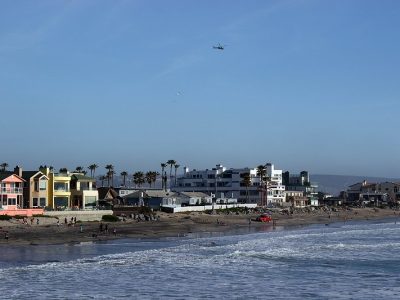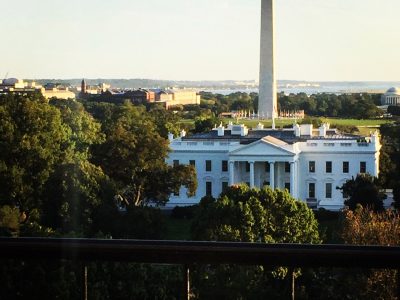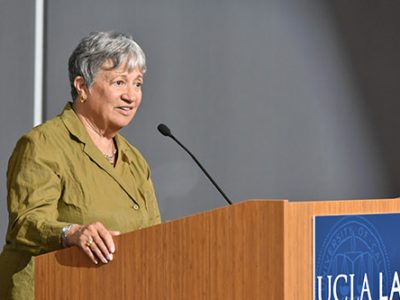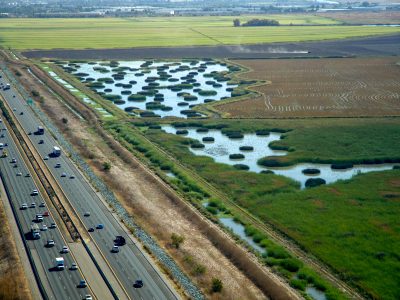Sea Level Rise Legislation Gets Second Chance
Senator Ben Allen introduces SB 1078, drawing on vetoed SB 83 (2021)
This week, Senator Ben Allen introduced SB 1078, a bill that would create a Sea Level Rise Revolving Loan Pilot Program to help coastal cities plan proactively for the effects of climate change. The law draws heavily from the framework of SB 83, which students in the California Environmental Legislation and Policy Clinic worked on, and which passed the California Legislature in September of last year before ultimately being vetoed by Governor Newsom. SB 1078’s...
CONTINUE READINGJustice 40 and Identifying Disadvantaged Communities
Why race is an important factor to consider
Last Friday, the White House Council on Environmental Quality released its long-awaited Climate and Economic Justice Screening Tool. The screening tool will guide the Biden Administration’s implementation of its Justice40 Initiative that directs that 40 percent of certain federal investment programs benefit disadvantaged communities. However, like may legal scholars predicted and the White House foreshadowed, the screening tool does not include race as an indicator, wh...
CONTINUE READINGWays of Price Making, Inflation, and Energy Price Shocks
This post was originally published on the Law and Political Economy blog as part of a symposium on inflation. Energy prices have been much in the news over the past several months, occupying a prominent place in mainstream discussions of inflation. Higher prices for oil, natural gas, coal, and electricity are all pushing up inflation across the economy, dampening consumer demand, canceling out wage gains, and compounding the burdens facing working families and th...
CONTINUE READINGMary Nichols’ new role at the Emmett Institute
This post is co-authored by Daniel Melling, communications manager at the Emmett Institute The New York Times reported last week that the Biden administration is preparing to restore California’s waiver to set greenhouse gas auto emissions standards stricter than the federal government’s rules. It’s the latest episode in a regulatory saga stretching back to the George W. Bush presidency (and the subject of countless Legal Planet posts). The story also notes the ...
CONTINUE READINGCan we govern large-scale green infrastructure for multiple water benefits?
by Lidia Cano Pecharroman, Christopher Williams, Nell Green Nylen, and Michael Kiparsky
Green infrastructure is increasingly emphasized as an alternative, novel path for water infrastructure. The possibilities are intriguing: Can we transition from a landscape dominated by siloed grey infrastructure (think concrete and steel, constructed for one or a few key outcomes like water supply or flood control) to one that centers natural processes in water infrastructure to achieve multiple goals? In a recently published paper, we explore the emerging possibilit...
CONTINUE READINGPainful Tradeoffs
How do we manage the local environmental impacts of the energy transition?
Just before leaving office, the Trump Administration approved a huge lithium mine in Thacker Pass, Nevada. The mine could help supply the U.S. battery industry for decades. It might also impact habitat of the endangered grouse sage, deplete groundwater levels, and threaten the survival of an endangered trout. Local residents have sued to block the mine. Knowing the Trump Administration, it’s quite possible that its approval of the mine is legally questionable. This ...
CONTINUE READINGThe 2022 Elections and State Environmental Policies
Governors are pivotal players in state regulatory policies
The formal powers of state governors vary from state to state. Like Presidents, however, they have been busy the past few decades centralizing control of their bureaucracies. That makes them key players in the environment and energy domain. This year, some key governors’ mansions are up for grabs. Here’s a summary of the current state of play in the key states, according to two leading forecasters: State Incumbent Cook’s Political Larry...
CONTINUE READINGBreaking Up with Fossil Fuels
It's not us. It's you.
WORLD: Thanks for the card. . . . But I think we need to talk. FOSSIL FUEL INDUSTRY: About what? W: About us. FFI: About us?? Can’t it wait until some other time? This is Valentine’s Day, and I’ve made plans for us. Big plans. W: The pandemic has given me a lot of time to think. I think we need to get some things out in the open. FFI: What “things”? W: It’s our relationship. I think it’s become toxic. I don’t know, maybe it’s alw...
CONTINUE READINGFrank G. Wells Clinic Faculty File Amicus Brief on Behalf of Law Professors in California Restaurant Association v. City of Berkeley
Supporting Berkeley's ability to decide where utility infrastructure may be built
This week, as part of the Frank G. Wells Clinic in Environmental Law, Cara Horowitz, Julia Stein, and I filed an amicus curiae brief on behalf of seven law professors in the Ninth Circuit case California Restaurant Association v. City of Berkeley, in which the California Restaurant Association (CRA), an industry association, is challenging a Berkeley ordinance barring natural-gas piping in most new buildings. Our clients are leading experts in energy and environmental...
CONTINUE READINGThe Battle for the Senate
The 2022 elections will have repercussions in 2024 and beyond.
How much does control of the Senate matter for purposes of environmental law? If Congress remains in Democratic hands, the Democrats can make another run at a reconciliation bill. Even if the House flips, control of the Senate still matters a lot, though the reasons are more complicated. The State of Play. Here’s where things sit right now in the most contested races. To win control of the Senate, Republicans need to hold their current seats and pick up at leas...
CONTINUE READING











